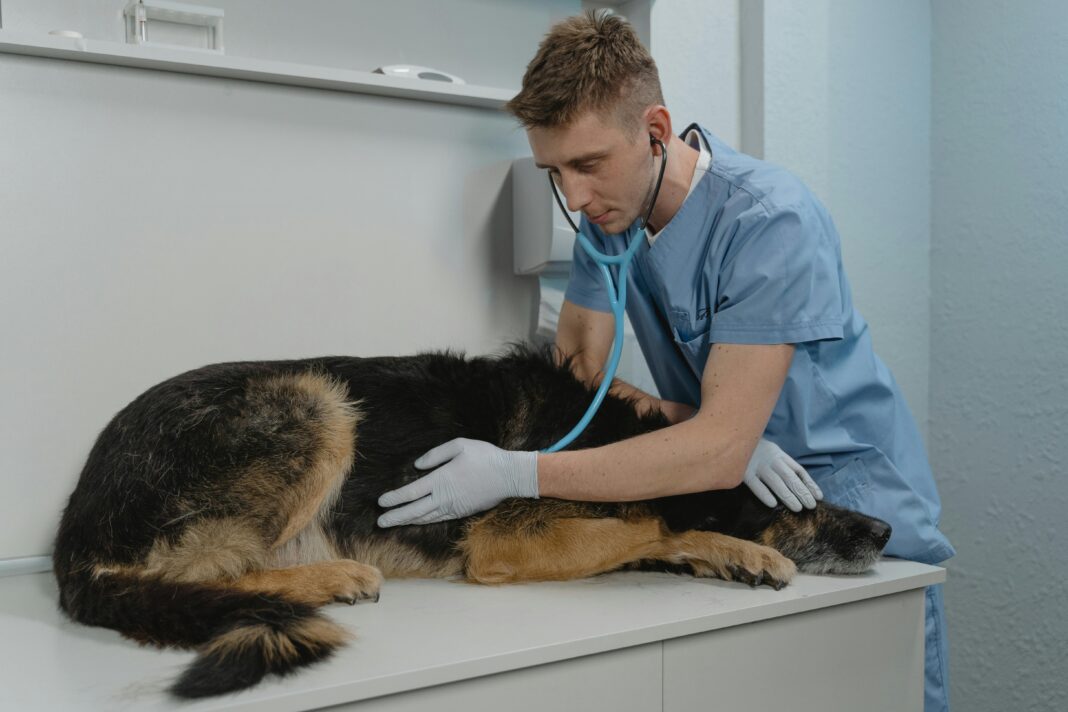As a devoted pet owner, staying informed about your furry friend’s health is crucial. Vet clinics regularly update their practices, treatments, and recommendations. This article offers a comprehensive look at essential updates related to pet healthcare that every pet owner should be aware of.
The Importance of Regular Vet Check-ups
Regular veterinary visits are vital for your pet’s overall health. These check-ups allow your veterinarian to catch potential health issues early, ensuring your pet stays healthy for years to come. During these visits, your vet will:
-
- Conduct a thorough physical examination
-
- Administer necessary vaccinations
-
- Discuss any behavioral changes or concerns
Practical Tip:
Schedule vet visits at least once a year for healthy pets and every six months for older animals or those with chronic conditions.
Preventive Care: Vaccinations and Parasite Control
Keeping your pet vaccinated is one of the best ways to prevent illness. Vaccination schedules can differ based on your pet’s age, breed, and lifestyle. Here are some important vaccines to consider:
-
- Core Vaccines: These include rabies, distemper, parvovirus, and adenovirus for dogs; and rabies, feline viral rhinotracheitis, calicivirus, and panleukopenia for cats.
-
- Non-Core Vaccines: Depending on exposure risk, these may include vaccines for Lyme disease or Bordetella in dogs and feline leukemia in cats.
Parasite Prevention:
Parasites such as fleas, ticks, and heartworms can pose serious risks. Your vet might recommend monthly preventatives tailored to your area’s specific parasite prevalence.
Practical Tip:
Keep a calendar for your pet’s vaccinations and preventative treatments, making it easier to stay on track.
Nutrition and Weight Management
A balanced diet is paramount to your pet’s health. As your pet ages, their nutritional needs may change. Here are some factors to consider:
Choosing the Right Food:
-
- Age-Appropriate Diet: Puppies and kittens require different nutrients than adult or senior pets.
-
- Special Dietary Needs: Pets with specific health conditions may require specialized diets, such as low-fat food for pancreatitis or gluten-free options for allergies.
Weight Monitoring:
Obesity is a growing concern among pets, leading to various health problems such as diabetes, joint issues, and heart disease. Regularly monitoring your pet’s weight and adjusting their diet can help maintain a healthy weight.
Practical Tip:
Discuss with your vet the best diet tailored for your pet’s age and health status. Measure their food portions to avoid overfeeding.
Common Health Concerns and Symptoms
Being vigilant about your pet’s health can help catch issues early. Some common signs indicating a need for veterinary attention include:
-
- Changes in appetite or weight
-
- Lethargy or excessive tiredness
-
- Vomiting or diarrhea
-
- Coughing or difficulty breathing
-
- Signs of pain (whining, limping)
Health Screenings:
Routine screenings can help identify underlying health issues before they become severe. Blood tests, urine tests, and imaging (like X-rays) are practical tools your vet may use.
Practical Tip:
Keep a journal of any behavioral changes or symptoms you notice. This will help your vet in diagnosing the issue.
Dental Care Updates
Oral health is often overlooked but is crucial for your pet’s overall well-being. Periodontal disease is one of the most common health issues among pets and can lead to serious health concerns if ignored.
Dental Health Tips:
-
- Regular Brushing: Aim to brush your pet’s teeth daily using toothpaste formulated for pets.
-
- Dental Treats and Chews: Dental-specific treats can help reduce plaque during chewing.
-
- Professional Cleanings: Discuss the need for professional dental cleanings with your vet.
Practical Tip:
Introduce dental care gradually to your pet, making it a positive experience with plenty of rewards.
Behavior and Mental Health
Behavioral health is just as important as physical health. Changes in behavior can signal distress or health issues. Regular training and mental stimulation are vital in keeping your pet happy.
Practical Recommendations:
-
- Engage in Play: Spend quality playtime with your pet to stimulate both their mind and body.
-
- Socialization: Regular interaction with other pets and people can enhance your pet’s confidence and well-being.
-
- Relaxation Techniques: Consider calming products or practices, especially for anxious pets.
Practical Tip:
Monitor your pet’s behavior for any changes, especially in stressful situations, and consult your vet for advice.
Emerging Treatments and Therapies
The veterinary field is always evolving, bringing new treatment options for various conditions. From acupuncture to hydrotherapy, holistic approaches can complement traditional treatment methods.
Alternative Therapies:
-
- Acupuncture: Can help relieve chronic pain and improve overall health.
-
- Physical Rehabilitation: Often used for recovery post-surgery or for age-related issues.
-
- Nutraceuticals: Supplements that offer health benefits may help in managing chronic conditions.
Practical Tip:
Discuss alternative treatments with your vet to see what may be suitable for your pet’s needs.
Emergency Preparedness
Accidents happen, and being prepared can make all the difference. Understanding your local veterinary emergency services is crucial.
Essentials for Pet Owners:
-
- Know Your Emergency Vet: Have the contact information of your nearest emergency vet clinic.
-
- First Aid Kit: Keep a pet-specific first aid kit, including basics like gauze, antiseptic wipes, and emergency contact numbers.
Practical Tip:
Familiarize yourself with the signs of a pet emergency, such as difficulty breathing, excessive bleeding, or seizures, so you can act quickly.
Staying informed about your local vet clinic’s updates and what they mean for your pet’s healthcare can significantly improve your furry friend’s quality of life. Regular check-ups, attention to prevention, nutrition, and behavior will keep your pet healthy and thriving.





